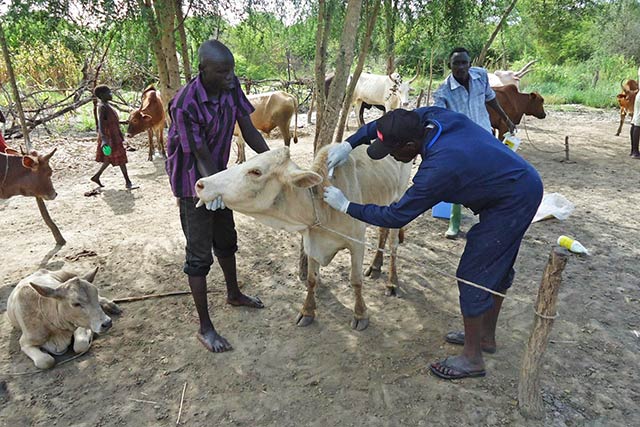The National Institute for Trypanosomiasis and Onchocerciasis Research (NITR) said it has treated over 10,000 livestock against Trypanosomiasis in Balanga and Kaltungo local government areas of Gombe State.
The Team Lead for the exercise, Mrs Evelin Okoh, disclosed this at the end of ‘Pan African Tsetse and Trypanosomiasis Eradication Campaign,’ held in Birwai, Lakwaime communities of Kaltungo LGA and Bangu, Bambam communities in Balanga LGA of the state.
She said apart from mass treatment exercise for identified infected livestock, where more than 10,000 livestock were treated free of charge, over 100 livestock owners also benefited from free treatment, consultation and counselling.
Mrs Okoh explained that the aim of the exercise is to break the transmission cycle of the disease, “and create a more conducive environment for increased animal and crop production for significant supply of healthy meat and dairy for economic development in the country.”
- ‘We’ve paid,’ British American Tobacco speaks on $110m FG fine
- PHOTOS: Tinubu spotted watching Ododo’s inauguration from France
The team lead added that in addition to the massive treatment, there was screening of large numbers of livestock using their blood samples, while herders and livestock owners benefited from free drugs and medications.
“Trypanosomiasis cases in livestock were discovered and appropriate measures are in place to curtail the spread and impact of the disease.
“Trypanosomiasis reduces productivity among agricultural communities, significantly affecting food production and the pattern of livestock distribution throughout sub-Saharan Africa.
“Mass treatment of infected animals and the provision of incentives are crucial in breaking the transmission cycle and encouraging herder participation. However, long-term surveillance and treatment programs are necessary to sustain the control intervention,” she added.
Okoh added that incentives were provided to the herders to encourage participation and improve animal health and well-being.

 Join Daily Trust WhatsApp Community For Quick Access To News and Happenings Around You.
Join Daily Trust WhatsApp Community For Quick Access To News and Happenings Around You.

